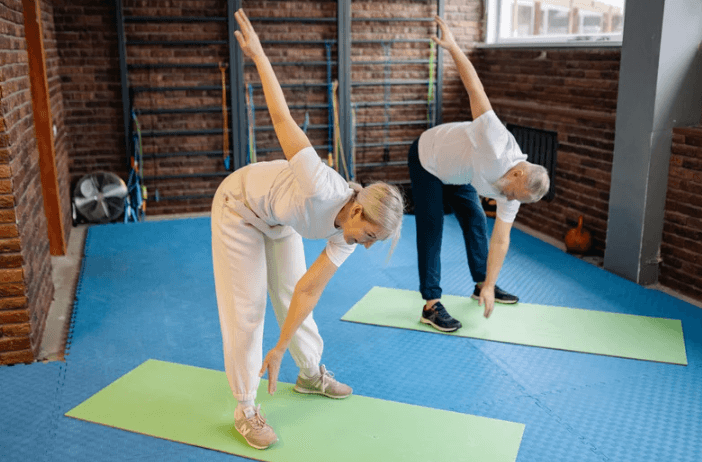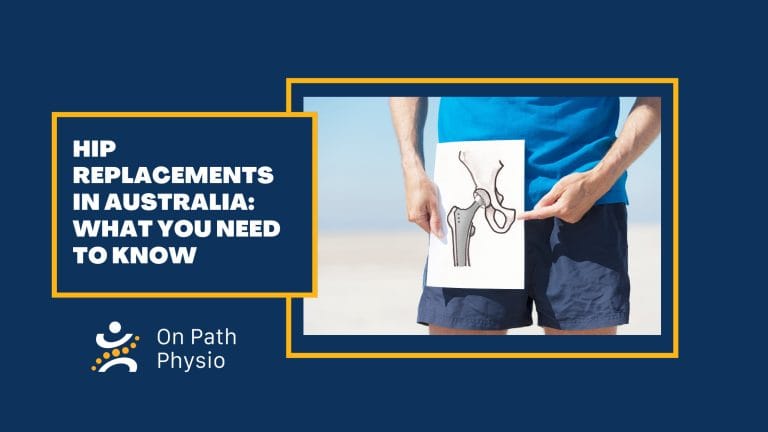Prefer watching instead of reading? Check out the video summaries of this post on our social media platforms linked below.
At On Path Physio, we see people every day dealing with muscle and joint pain whether it’s the result of an injury, surgery, chronic condition, or simply pushing a little too hard at the gym. A common question we get from clients is: “Should I be taking anti-inflammatories?”
While medications like ibuprofen and naproxen (NSAIDs) can offer short-term relief they’re not always the best long-term solution especially when it comes to recovery and rehabilitation. Here’s what you should know as a physical therapy client about when and how to use anti-inflammatories wisely.
What Is Inflammation, and Why Does It Matter?
Inflammation is your body’s natural way of healing. After a strain, sprain, or overuse injury the body sends inflammatory cells to the area to start repairing tissue. This process can cause pain, swelling, heat and stiffness but it’s also necessary for recovery.
That said too much inflammation or inflammation that sticks around too long can interfere with your ability to move and heal properly. This is where anti-inflammatories might help but only in certain situations.
When it is Helpful to use Anti-Inflammatories
1. Acute injuries with significant swelling or pain
If you’ve just injured yourself, say rolled an ankle or strained your back and you’re dealing with immediate pain and swelling, a short course of NSAIDs can help reduce inflammation and get you moving more comfortably.
At On Path Physio we may recommend NSAIDs in the first 48–72 hours of an injury to help manage pain and swelling especially if it’s affecting your ability to sleep or start movement therapy.

2. Flare-ups of chronic joint conditions
When managing osteoarthritis, rheumatoid arthritis, or similar conditions anti-inflammatories can help control flare-ups and stiffness, particularly when symptoms limit participation in your rehab program.
3. Post-Surgical Swelling (As Directed by a Doctor or Physio)
After surgery mild anti-inflammatory use can sometimes help with swelling and pain but always follow the guidance of your surgeon or physio team.
When to avoid or be cautious with anti-inflammatories
1. Immediately After Exercise or Rehab
That muscle soreness you feel after a physio session or workout is a normal part of tissue adaptation. Regular use of NSAIDs can blunt the healing response and slow your long-term progress.
At On Path Physio, we typically advise against using anti-inflammatories right after strengthening or tissue-loading exercises unless the pain is severe and limiting function.
2. Tendon and ligament injuries
Tendon healing (like in Achilles tendonitis or rotator cuff injuries) relies on controlled inflammation. NSAIDs too early can interfere with collagen repair, leading to delayed healing.
3. Prolonged use without medical oversight
Long-term NSAID use can cause digestive issues, kidney stress and cardiovascular risks. If you find yourself relying on them daily it’s time to speak with your physio or GP about other strategies.
Smart use tips from On Path Physio
- Take NSAIDs with food to avoid stomach irritation.
- Use only as needed and avoid long-term reliance.
- Combine with other treatments: ice, heat, manual therapy, targeted exercises and education.
- Always inform your physiotherapist about what medications you’re taking it helps us tailor your treatment safely.
Alternatives to anti-inflammatories we recommend
If you’re trying to manage pain while supporting healing, consider:
- Ice or heat therapy, depending on the stage of healing
- Gentle movement to improve circulation and mobility
- Manual therapy and guided exercises from your physio
- Topical NSAIDs (like Voltaren gel) for more localised relief
- Nutritional supports like omega-3s, turmeric, and magnesium


The Bottom Line: healing, not just pain relief
At On Path Physio, we’re focused on restoring movement, building strength, and supporting long-term recovery. Anti-inflammatories can play a helpful role but only when used with intention and as part of a bigger rehab plan.
If you’re unsure whether NSAIDs are appropriate for your specific condition or rehab phase, talk to your physiotherapist. We’re here to guide you on the path that’s right for your body, your goals, and your healing process.
Need help managing your pain or recovery?
Book an appointment with On Path Physio today, and let’s get you moving in the right direction without unnecessary setbacks.
Prefer watching instead of reading? Check out the video summaries of this post on our social media platforms linked below.




